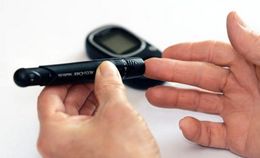Perimenopause refers to the stage in a woman’s life that precedes menopause, which is determined to be when menstruation has stopped for at least 12 months. The average age of menopause is 51 years old, but the period leading up to that, perimenopause, typically begins in the mid-40s, sometimes earlier and occasionally much earlier. Perimenopausal symptoms can be disruptive and distressing, especially for women who are not anticipating them.
Certain factors can result in perimenopause coming on earlier: family history of early menopause in the female line, a complete or partial hysterectomy, chemotherapy or radiation treatment and certain other medications, obesity, smoking and high stress.
What are some signs you might be in perimenopause?
The list of perimenopause symptoms is lengthy and is the same as those for menopause, but usually milder, though symptoms typically worsen as menopause approaches. Here are the most common ones[i], all of which result from hormonal fluctuations:
Hot flashes/nightsweats: ugh! Can be more than annoying if they necessitate clothing changes and cause interrupted sleep.
Mood swings: Can resemble what many women experience as PMS (premenstrual syndrome) and can lead to generally not feeling like yourself.
Irregular periods: Periods can become shorter or longer, more frequent or less frequent, heavier or lighter. It is important to remember that until periods stop for at least 12 months and sometimes longer, you might still be fertile.
Low sex drive: This one can creep up on you and can lead to relationship problems.
Vaginal dryness: Can lead to painful sex and also relationship problems.
While these are the most common and best known symptoms, there are many others that you wouldn’t expect, but may perhaps recognize[ii]:
Osteopenia/osteoporosis: A risk known to increase with menopause and approaching menopause, particularly if it runs in the female family line.
Weight gain: Because of hormonal fluctuations that affect the metabolism, women in perimenopause can gain weight even if they have not previously had weight problems.
Insomnia: Almost two-thirds of women experience a decline in sleep quality at the time of perimenopause.
Anxiety and/or irritability: If you have a history of either of these, they might become aggravated during perimenopause.
Hormonal headaches: Many women experience these before perimenopause, and if so, they might worsen.
Depression: Approximately 15% of perimenopausal women experience this.
Bloating: Often a premenstrual symptom that can worsen as menopause approaches.
Allergies: A surprising symptom that results from hormonal fluctuations affecting the adrenal glands.
Brittle nails and thinning hair: These symptoms can be challenging for many women.
Body odor: Related to hot flashes and temperature regulation in general, which causes more perspiration.
Dizziness: Can result from lower estrogen levels.
Bladder incontinence: Lower estrogen can lead to reduced tone in the pelvic floor muscles, which can contribute to urgency and incontinence.
Heart palpitations: Can be scary when experienced, these can accompany hot flashes.
Breast tenderness: Due to lower estrogen levels.
Joint pains: Also surprising, resulting from less elasticity of joint issue.
Dry or “burning” mouth: Lower estrogen levels can affect saliva production.
Sensation of electric shocks: Can accompany hot flashes.
Tingling or cold sensation in fingers and toes: Can be caused by hormonal fluctuations.
Hair growth: In places you don’t want it as testosterone becomes more dominant.
Memory loss, difficulty concentrating: Do you go into a room but don’t remember why you’re there? Could be due to hormonal fluctuations.
Fatigue: Less energy that can be made worse by insomnia and nightsweats.
Perimenopause as a life-stage
Such a long list of symptoms as those associated with perimenopause can be life-changing. But some soul-searching may also be in order. For many women, this same time can be associated with other life changes: children who are adolescents or getting ready to leave the nest, caring for aging parents, pressures from work or career, changes in marital or partner relationships. It can be challenging to sort out which of your symptoms might be due to these newer stresses, and which are due to perimenopause.
Then there’s the reality of getting older itself, which perimenopause is a reminder of. Do you see aging as primarily a negative process in your life? Our society very strongly reinforces this view, and attitudes about getting older can affect the experience of even physical perimenopausal symptoms. For much more on this important topic, take a look at Dr. Christiane Northrup’s The Wisdom of Menopause.
While many factors can affect the timing of onset (such as surgery or medications, as already mentioned), perimenopause is a normal life transition like others such as puberty or pregnancy. While all women experience symptoms to one degree or another, it can be important to discern whether any cross the line into pathology (or not).
Conventional treatment of perimenopausal symptoms[iii]
Annoying symptoms that result in major disruptions in daily life, work life or marital life might require some attention. Other symptoms such as severe pain (menstrual, joint, breast), anemia resulting from heavy menstrual bleeding, suicidal thoughts, heavy fatigue, serious memory loss, noticeable hair loss, bone fractures or frequent urinary accidents should be assessed by your primary care provider in order to rule out certain pathologies.
Low-dose contraceptives might be prescribed in order to regulate periods and relieve vaginal dryness, moodiness and other symptoms.
Hot flashes and moodiness are sometimes treated with prescription anticonvulsive and depression medications.
Menopausal hormonal therapy (MHT) is prescribed for a range of menopausal symptoms. However, the FDA currently advises women “to use MHT for the shortest time and at the lowest dose possible to control menopausal symptoms”[iv].
Many women look to bioidentical hormones, having been told by manufacturers that they are identical to hormones naturally produced by the body. However, at this time there is insufficient research to support these claims.
For vaginal dryness and/or painful sex, over-the-counter gels or creams might be recommended. If these don’t work well enough, you might be prescribed an estrogen cream or other product to be applied locally.
An integrative approach to perimenopausal symptoms
Alongside conventional medicine options, a natural approach like homeopathic remedies, which are federally recognized in the US, can be very helpful.
We will first have a long conversation that includes a detailed analysis of all your symptoms (emotional, cognitive and physical; some may be common, others may not), as well as a frank discussion about your feelings toward your life, where you’ve been and what you anticipate in your future.
First are the things you can do on your own:
If you are a smoker, perimenopausal symptoms are yet another reason to think about reducing or quitting altogether.
If you have a high-stress life, you may be able to consider including more stress-management techniques into your daily routine such as exercise, spending time in nature (always relaxing!), deep breathing (there are apps for this like Stop&Breathe, Calm), pursuing a favorite hobby, staying connected to friends and loved ones, and meditation. That’s a lot to add on, but including one of these at a time over the longer-term can be helpful.
If you have put on unwanted weight, please call or Email and ask me about metabolic balance®, the personalized nutrition program I am certified to coach that can help you achieve weight loss and long-term weight management by balancing your metabolism using only whole foods.
Most of the long list of symptoms associated with perimenopause can be addressed using various homeopathic remedies, and we would probably start with the symptoms that are of greatest concern to you, working through them until you are feeling more comfortable in your skin.
Our aim would be to ease what is a natural transition from perimenopause through menopause over to “the other side” with minimum disruption, along with welcoming and embracing the benefits that accompany the aging process itself.
For more information, visit my profile, follow me, and learn about WellnessCareOnline, which focuses on balancing hormones, metabolism, weight and mood. And call me for a free 15-minute consultation to learn more about how I work with clients.
What have you done that has helped your perimenopausal symptoms?
[i] National Institute for Health and Care Excellence (NICE), UK (2015) Menopause.
[ii] The list that follows is informed by the clinical experience of Karen Allen CCH, who for many years has been helping women with endocrine and hormonal issues.
[iii] https://www.womenshealth.gov/menopause/menopause-treatment
[iv] https://www.cancer.gov/about-cancer/causes-prevention/risk/hormones/mht-fact-sheet




















